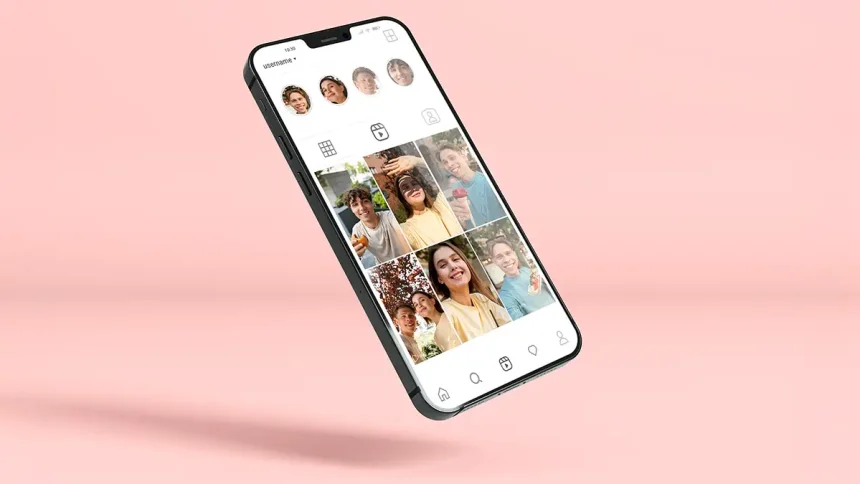Learn how to protect your smartphone from digital threats with practical tips on managing location settings, avoiding public Wi-Fi risks, securing apps, and using mobile security tools.
I was at the pub, half-distracted by my overpriced IPA and mindlessly scrolling through Twitter for the third time that hour when my phone buzzed. A notification appeared: “This app has been tracking your location in the background.” My first reaction was annoyance, followed closely by the sinking realization that I had no one to blame but myself. The culprit? A random weather app I couldn’t even remember installing. Why does it need to know where I am at 3 a.m.? And why did it take me this long to notice?
Here’s the thing: our smartphones are tattletales. Every app, every Wi-Fi connection, every innocent Google search—they’re all busy compiling dossiers on us. Think of your phone as a digital snitch, keeping tabs on everything from your most private texts to your poorly hidden online shopping habits. And the worst part? Someone out there is itching to get their hands on all of it.
The EFF (Electronic Frontier Foundation) crunched the numbers: one in five people is completely oblivious to the fact their phone could be hacked. Millions of users walking around, broadcasting their personal lives like a poorly secured reality show. The good news? You don’t have to be one of them. A few smart changes, and you can lock down your life.
Stop Letting Apps Act Like Creeps
Let’s talk about those apps you’ve been so generous with. Remember when Google Maps started casually telling you how long it’ll take to get home every evening? That’s not magic—it’s surveillance. Location tracking is convenient right up until you realize you’ve handed over the blueprints of your daily routine to a faceless corporation. Or worse.
The fix is simpler than you’d think. Head into your settings, whether you’re team Android or iOS, and shut it down. Restrict location access to “only while using the app” and, for the love of everything sacred, turn off GPS when you don’t need it. Do your calorie-counting app and rideshare service really need to know where you are 24/7? No. Small changes like this make you harder to track—and trust me, that’s a good thing.
Public Wi-Fi: Danger Disguised as Convenience
Public Wi-Fi is like that free sample you know you shouldn’t take but do anyway. The temptation is real. Coffee shops, airports, hotels—it’s everywhere, promising free internet in exchange for a fraction of your soul. But here’s the ugly truth: those networks are playgrounds for hackers.
Picture some guy hunched over a laptop, sipping a macchiato, and quietly stealing passwords from unsuspecting users. That guy is real, and he loves unsecured Wi-Fi. Your best defense? A VPN. It encrypts your internet traffic, turning your digital footprint into a blurred line no one can follow. And while you’re at it, disable your phone’s auto-connect feature. Nothing screams “hack me” like blindly connecting to networks with names like “FreePublicWiFi123.”
Flashlight Apps and Other Villains
Do you know what’s worse than a hacker? A flashlight app that thinks it needs access to your contacts. It’s ridiculous, right? But it happens all the time. Innocent-seeming apps often come bundled with trackers or spyware, all designed to harvest your data while you binge TikTok.
Here’s the golden rule: stick to trusted app stores like Google Play or the Apple App Store. No third-party knockoffs, no promises of “free movies for life.” Before you hit “download,” read the reviews, check the permissions, and ask yourself, “Why does this Sudoku app want to use my microphone?” If it feels wrong, it probably is.
Hire a Digital Bodyguard
Even the most careful among us can get duped. That’s where mobile security apps come in. Think of them as bouncers for your phone. They scan for malware, block sketchy websites, and can even let you remotely wipe your device if it’s ever lost or stolen.
There are plenty of good options—Lookout, Norton, whatever suits your fancy. They’re not just for tech nerds. If you’ve ever stored anything remotely sensitive on your phone (and let’s be real, you have), these apps are worth every penny.
Stay Sharp, Stay Safe
Here’s the deal: nothing is foolproof. Cybercriminals are clever, resourceful, and constantly innovating. But you don’t need to be their easiest target. Update your software. Think before you click. Treat every unsolicited email link like it’s a trap—because it probably is.
Your phone knows you better than most people. It holds your secrets, your habits, and sometimes your darkest moments. Don’t let it sell you out. With a little effort, you can make sure your smartphone works for you—not against you. Because if you don’t, someone else will gladly take control.





